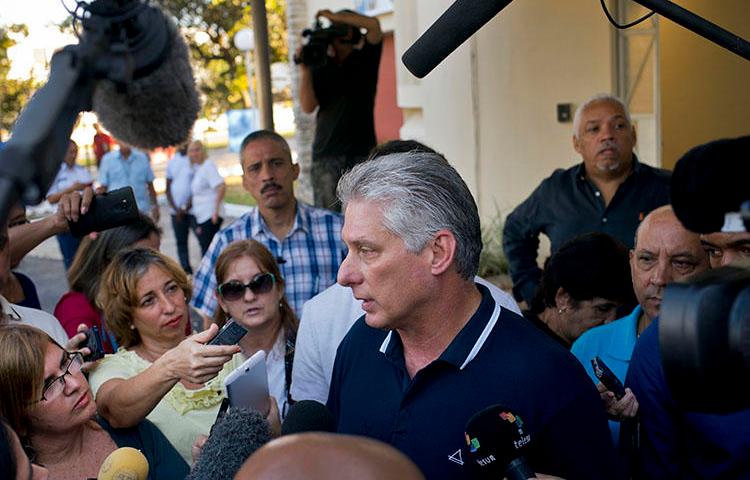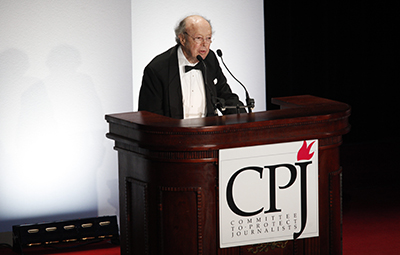
Critical news websites blocked during Cuba referendum vote
Miami, February 25, 2019– Cuban authorities should immediately ensure citizens have access to news websites, the Committee to Protect Journalists said today. Several critical news sites were blocked in the country yesterday, as Cuba held a national referendum on proposed changes to its constitution, news sites reported.
Connecting Cuba
Staying connected in an offline world By Alexandra Ellerbeck For Elaine Díaz Rodríguez, founder of Periodismo de Barrio, internet access in poorly connected Cuba comes at a premium. “Our reporters have less than 10 hours a month of internet access,” she told CPJ during the Latin American Studies Association conference in New York, where she…
Connecting Cuba
Foreword: Contemplating a free press in Cuba By Ernesto Londoño A free press, at its best, is the conscience of a nation, an indispensable arbiter of truth and righteousness. When it is doing its job well, a free press unearths unpleasant truths, holds people in power accountable and champions marginalized communities.
Connecting Cuba
Cuba’s evolving news agenda At the Argos Theatre in Havana, Yenys Laura Prieto Velazco purchased a ticket for Diez Millones, a popular play about a Cuban family torn apart by the ideological fanaticism of the Cuban revolution and by the father’s departure to the U.S. during the 1980 Mariel boatlift.

As US-Cuba relations thaw, what’s next for the island’s independent press?
“Our hope is that President Obama will meet journalists working for the alternative media, not just to cover his visit, but to start a dialogue,” said Elaine Díaz Rodríguez, director of Periodismo de Barrio (Neighborhood Journalism) a website focusing on climate change and the impact of natural disasters on local communities. Díaz, who last year…
Criminal Defamation Laws in The Caribbean
Contents Critics Are Not Criminals: Comparative Study of Criminal Defamation Laws in the Americas I. Antigua and Barbuda A. Criminal Laws Restricting Freedom of Expression Defamation remains a criminal offence in Antigua and Barbuda under the Libel and Slander Act, which dates to 1876 and was last updated in 1976. The Act, which governs both…

In Cuba, case for harassing press has collapsed
Throughout the years, the Cuban government has justified the imprisonment of independent journalists on charges that they were acting against the State’s sovereignty at the behest of the United States. During the so-called Black Spring in March 2003, when the government then led by President Fidel Castro launched a massive crackdown against dissidents while the…
Attacks on the Press in 2013: Cuba
To complement gradual economic and political reforms, Cuba made small, but mostly symbolic openings in the press freedom landscape in 2013, and impact for the independent media was minimal. One exception was legislation easing exit visa regulations that was passed in 2012 but implemented in 2013. The law allowed critical bloggers and political dissidents to…

News from the Committee to Protect Journalists, March 2013
Remembering Tony Lewis CPJ mourns the death this month of Anthony Lewis, one of the organization’s founding board members and a recipient of its 2009 Burton Benjamin Award for lifetime achievement. Lewis passed away on March 25. “Back in 1981, when CPJ was being formed and its board of directors assembled, Tony Lewis … was…
